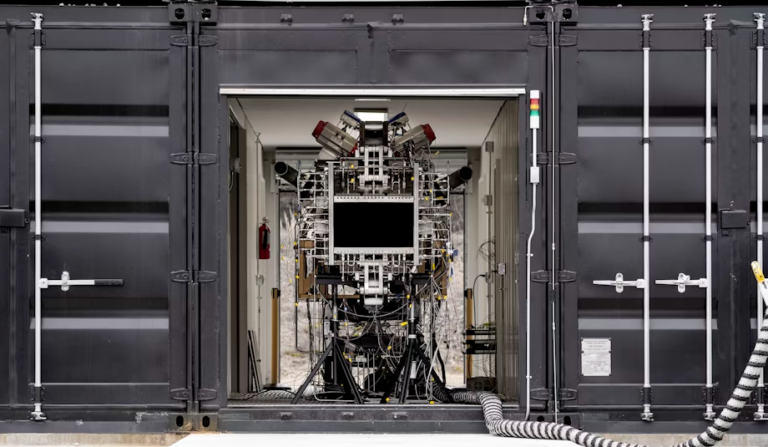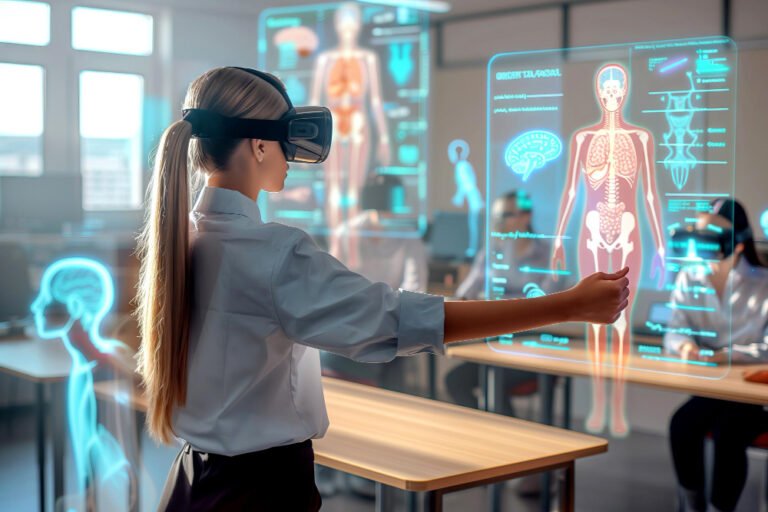Can AI Predict Allergic Reactions and Identify Ideal Skincare Ingredients?
In recent years, artificial intelligence (AI) has made significant strides in various fields, including healthcare and dermatology. The application of AI in predicting potential allergic reactions and identifying ingredients best suited for specific skin types is an emerging area that holds great promise. This article delves into how AI can be utilized to enhance skincare by predicting allergies and personalizing skincare products.
Need for AI in Skincare
Skincare is a complex field where individual responses to products can vary widely. Factors such as genetics, environmental exposure, and existing health conditions influence how one’s skin reacts to different ingredients. Traditional methods of determining suitable skincare products often involve trial and error, which can be time-consuming, expensive, and sometimes harmful.
AI offers a solution by leveraging vast amounts of data to provide personalized recommendations. By analyzing historical data, genetic information, and environmental factors, AI can predict potential allergic reactions and recommend ingredients tailored to individual skin types. This not only improves the efficacy of skincare products but also enhances safety and user satisfaction.
AI in Predicting Allergic Reactions
Allergic reactions to skincare products can range from mild irritation to severe rashes and other complications. AI’s ability to predict these reactions is based on several advanced techniques:
Machine Learning Algorithms:
Machine learning algorithms can analyze patterns in large datasets to identify correlations between certain ingredients and allergic reactions. By training these algorithms on historical data of allergic reactions and ingredient lists, AI can predict the likelihood of an adverse reaction for a new user based on their profile.
Natural Language Processing (NLP):
NLP can be used to analyze user reviews and reports of allergic reactions from various sources, including online forums and medical records. This helps in identifying common allergens and understanding how different skin types react to specific ingredients.
Genetic Data Analysis:
AI can analyze genetic data to identify individuals who are genetically predisposed to certain allergies. Companies like 23andMe provide genetic testing services that can reveal predispositions to various skin conditions and allergies. Integrating this genetic information with AI models allows for highly personalized predictions.
Image Recognition:
AI-powered image recognition tools can analyze images of skin to detect early signs of allergic reactions. By comparing these images with a database of known reactions, AI can provide early warnings and recommend preventive measures.
Identifying Ingredients Best Suited for Specific Skin Types
Determining the right ingredients for individual skin types involves understanding the unique characteristics of each skin type. AI can assist in this process through the following methods:
Skin Type Classification:
AI can classify skin types by analyzing data from questionnaires, images, and even genetic tests. This classification helps in identifying the specific needs of different skin types, such as hydration for dry skin or oil control for oily skin.
Ingredient Effectiveness Analysis:
By analyzing clinical trial data and user feedback, AI can determine the effectiveness of various ingredients for different skin types. For instance, AI can identify which ingredients are most effective in reducing acne for oily skin or which moisturizers work best for dry skin.
Personalized Skincare Recommendations:
AI can combine data from various sources, including user skin type, genetic information, environmental factors, and personal preferences, to provide personalized skincare recommendations. This ensures that users receive products tailored to their specific needs, enhancing the efficacy and satisfaction of their skincare regimen.
Dynamic Adjustments:
AI can monitor changes in skin condition over time and adjust recommendations accordingly. For example, during winter, when skin tends to be drier, AI can suggest products with more hydrating ingredients. Conversely, in humid conditions, it might recommend products that control excess oil.
Case Studies and Applications
Several companies and research initiatives are leveraging AI to improve skincare:
Curology:
Curology uses AI to analyze photos of users’ skin and provide personalized skincare formulas. Users upload photos and complete a questionnaire, and AI helps dermatologists create custom formulas tailored to each user’s skin condition and goals.
L’Oreal:
L’Oreal has developed an AI-powered app called SkinConsult, which uses image recognition to assess skin conditions and recommend personalized skincare routines. The app analyzes photos of the user’s face to detect issues such as wrinkles, dark spots, and uneven texture.
Olay Skin Advisor:
Olay’s Skin Advisor is an AI-driven platform that provides personalized skincare recommendations based on a selfie and a short questionnaire. The AI analyzes the user’s skin and suggests products that target specific concerns.
Challenges and Ethical Considerations
While AI offers significant benefits in skincare, it also presents challenges and ethical considerations:
- Collecting and analyzing personal data, including genetic information and skin images, raises privacy concerns. It is crucial to ensure that data is collected and stored securely and that users have control over their information.
- AI models can be biased if trained on non-representative datasets. For example, if the dataset lacks diversity in terms of skin types and ethnic backgrounds, the AI’s predictions and recommendations may not be accurate for all users. Ensuring diversity in training data is essential to mitigate this risk.
- The use of AI in healthcare, including dermatology, is subject to regulatory oversight. Adherence to regulations such as the General Data Protection Regulation (GDPR) in Europe and the Health Insurance Portability and Accountability Act (HIPAA) in the United States is essential.
- While AI can provide valuable insights, it is important to recognize that it is not infallible. There must be accountability mechanisms in place to address potential errors or inaccuracies in AI predictions and recommendations.
Role of Aiotechnical.com
Aiotechnical.com is at the forefront of integrating AI with skincare technology. The platform leverages advanced AI algorithms and vast datasets to provide users with personalized skincare solutions. Here’s how Aiotechnical.com contributes to the field:
- It offers a comprehensive skin analysis using AI-powered tools. By analyzing user-provided data such as skin type, lifestyle factors, and genetic information, the platform can identify potential allergens and recommend suitable skincare ingredients.
- The platform’s AI continuously monitors user feedback and skin condition changes. This real-time monitoring allows for dynamic adjustments in skincare recommendations, ensuring optimal results.
- Aiotechnical.com provides users with educational resources on skincare and AI. This helps users understand how AI-driven recommendations are made and how they can benefit from personalized skincare.
- The platform collaborates with dermatologists and skincare experts to validate AI recommendations. This collaboration ensures that the AI’s predictions and advice are grounded in dermatological science.
- Aiotechnical.com places a high priority on data privacy and security. The platform uses robust encryption and data protection measures to safeguard user information, ensuring compliance with global data privacy regulations.
Conclusion
The integration of AI in predicting potential allergic reactions and identifying ingredients best suited for specific skin types represents a significant advancement in the field of dermatology and skincare. AI’s ability to analyze vast amounts of data, recognize patterns, and provide personalized recommendations enhances the effectiveness and safety of skincare products. As AI technology continues to evolve, platforms like Aiotechnical.com will play a crucial role in making personalized skincare accessible and reliable for users worldwide. By addressing challenges such as data privacy, bias, and regulatory compliance, the skincare industry can harness the full potential of AI to improve skin health and user satisfaction.







